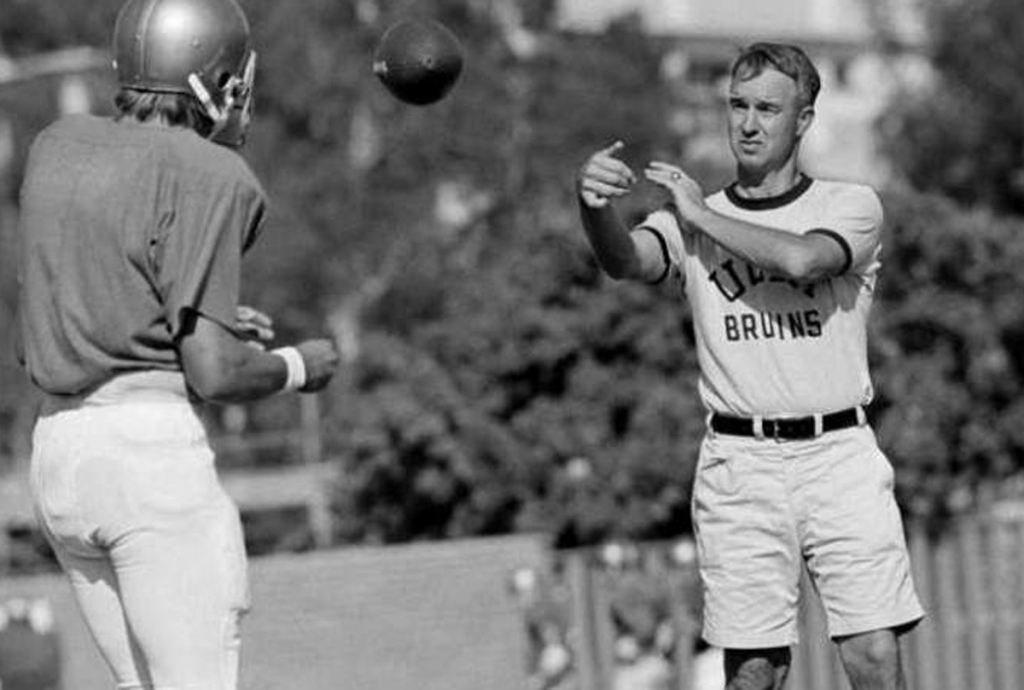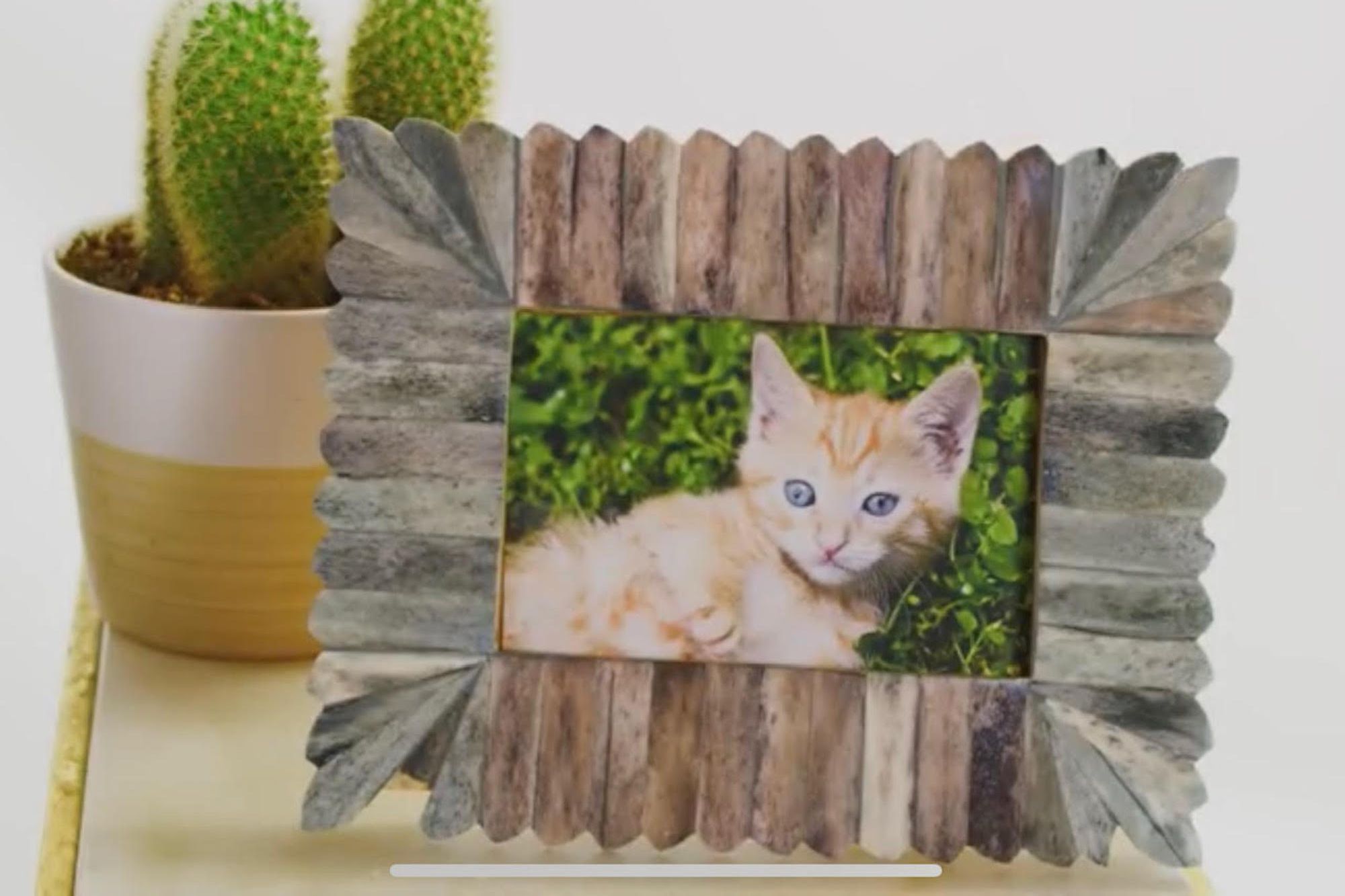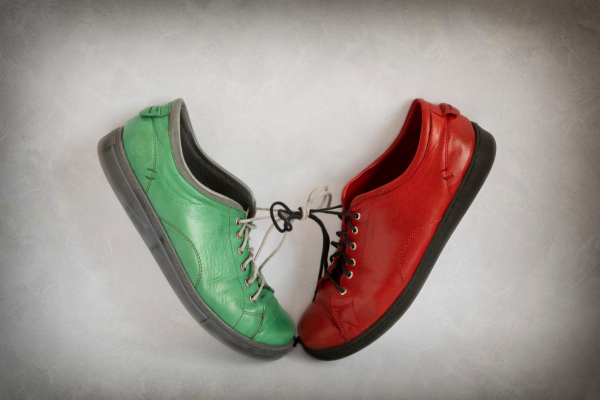Pepper Rodgers would somersault his way onto the field, his Kansas team running behind him.
When he hired assistant coaches at Kansas, UCLA or Georgia Tech, he judged their recruiting skills by their wives and girlfriends. “If you’d married over your skis, you were in good shape,” Terry Donahue said.
He would bring his ukulele to the office one day and brandish his miniature chess set the next.
His Mondays were different from his Tuesdays, as were his Wednesdays, all the way until last week, when he died at 88.
Donahue remembers a day at Kansas, after Rodgers had succumbed to Donahue’s letter-writing campaign and hired him as an assistant.
“A big-time writer was coming in from Sports Illustrated,” Donahue said. “Pepper had it all planned. When the writer got there, me and another assistant coach started yelling at each other. Pepper ordered us to take it outside.”
Rodgers just happened to have a tube of fake blood on hand. Donahue and his antagonist went around the corner, kept yelling and cussing, and messed up each other’s shirts with the blood. They returned to the meeting, Rodgers was still talking, and the writer was involuntarily blinking.
“Then Pepper couldn’t stand it any longer and started laughing,” Donahue said.
“That’s the way he was. He was never in the box. You learned to just enjoy the ride. And to know him was to love him.”
Rodgers’ spicy ways acted like pepper. They masked his coaching abilities, which were formidable.
It appeared Rodgers had won a Rose Bowl at Kansas, until the refs spotted 12 defenders on the field when the Jayhawks broke up Penn State’s 2-point conversion.
“We’d found a routine way to win,” Rodgers said, “but then we found a memorable way to lose.”
It’s likely that no UCLA football coach had a longer impact in a shorter period of time than Rodgers.
He was at UCLA three years and was 8-3 and 9-2 in 1972 and 1973. Nineteen Bruins were drafted by the NFL in ‘73 and ‘74.
Rodgers had been Tommy Prothro’s offensive coordinator and nurtured Heisman Trophy winner Gary Beban. When he left UCLA for alma mater Georgia Tech in ‘74, the players he left helped Dick Vermeil win a Rose Bowl in ‘76. Donahue followed Vermeil and became the top winner in Pac-10 history.
Still, Donahue knew who was boss. He had won a Rose Bowl when Rodgers called him one day.
“I’m coming to L.A., Don-a-hoo,” Pepper said. “So come pick me up at the airport.”
“Hey, I’m not your graduate assistant anymore,” Donahue said.
“You’ll always be my graduate assistant,” Rodgers replied. “Just pick me up.”
So Donahue did.
“I remember one time he was trying to get us to stretch more, and we weren’t paying attention,” said Ed Kezirian, a guard in ‘72-’73. “Finally he got this aerobics instructor to come out with her tight leotard. He made us form a circle around her. So we got pretty good at stretching.”
The ‘73 Bruins were a tank division. They lost to Nebraska but then won nine consecutive games and scored 55 or more points in six of them. Kermit Johnson and James McAlister ran wherever they wanted and quarterbacks John Sciarra and Mark Harmon made the right reads. UCLA ran for 53 touchdowns and averaged 400 ground yards.
“Then USC came along and our guys started talking in the paper,” Sciarra said. “We wore white shoes to make us look faster. We were just overconfident.”
UCLA turned it over six times and USC won, 23-13.
“Pepper left after that,” Donahue said. “The fans didn’t like the wishbone. If he’d called it something else, maybe they would have accepted it.”
“He also didn’t perform a lot of his antics at UCLA,” Sciarra said. “He sensed people were a little more serious.”
Humorless UCLA fans? Imagine that.
Rodgers claimed he could sing the fight song of every college team. He took the Bruins to a Friday night movie, The Trial of Billy Jack, only because he was in it for a scene or two.
And when he recruited one high school All-American at Kansas, he asked the kid if he wanted to hear the same old recruiting pitch, or just music.
“Music,” said the prospect.
“Me, too,” Rodgers said, so that’s what they did.
“This shelter-in-place would have been tough on him,” Donahue said. “He had to be doing something. You’ve heard of ADD. Pepper was ADDDDDD. However many Ds you want to put in there.”
“I proved I could win with good players,” Rodgers said, “and I proved I couldn’t win with bad ones.”
He also proved that whatever happened Saturday can be allowed to dissipate before Monday.










